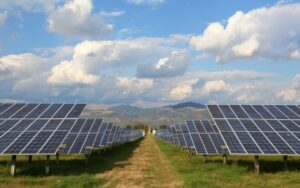Ten years in the making | GM and Honda begin mass production of hydrogen fuel cells at Michigan factory

Auto giants General Motors (GM) and Honda yesterday (Thursday) started mass production of their hydrogen fuel cell systems at their factory in Michigan, ten years after they first started work on the technology.
The $85m “FCSM” factory in Brownstown, Michigan — named after the 50:50 Fuel Cell System Manufacturing joint venture between US-based GM and Japan’s Honda that funded the facility — will now churn out fuel cells for “various product applications and business ventures”.
FCSM has been focused on bringing down the cost of fuel cells, and says it has reduced their cost by a third compared to Honda’s standalone product, which was used in the Japanese company’s 2019 hydrogen-powered Clarity car.
This was made possible by economies of scale, advancing the cell design, simplifying the auxiliary equipment and reducing the use of costly precious metals.
“In addition to advancing fuel-cell system performance, GM and Honda collaborated to double durability compared to the 2019 Honda Clarity Fuel Cell by using corrosion-resistant materials and by improving low-temperature operation,” FCSM said in a press release.
The factory is also pioneering automated assembly methods, the joint venture said, including those for automating membrane-electrode assembly production, and fuel-cell-stack assembly.
Article continues below the advert
Work on the 70,000-square-foot (6,500-square-metre) facility in Brownstown started in earnest in January 2017 when FCSM was established, however engineers from Honda and GM first began co-developing a fuel cell system as long ago as 2013.
“We integrated the strengths of Honda and GM to create the most capable production system at this joint venture,” said Tetsuo Suzuki, vice-president of FCSM. “We brought a mass production mindset with attention to detail and a focus on high quality, and now we are ready to meet the needs of the customers for the future applications of fuel-cell technology and the beginning of the hydrogen era.”
FCSM president Suheb Haq added: “We begin the process with raw materials for membrane and electrode all the way through completed systems. Ongoing investment and commitment by both companies is driving our success at FCSM. This commitment aligns with our mission of making high quality, durable and affordable hydrogen fuel cell systems for a wide range of applications and customers.”






